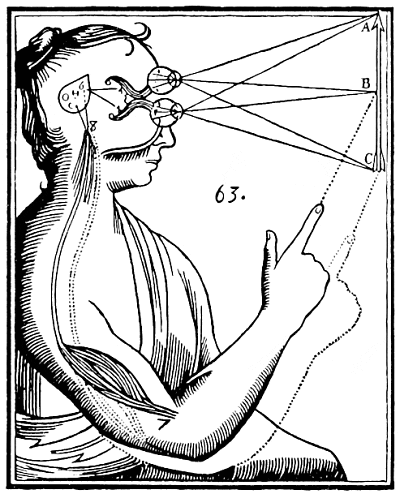 Never reject a religion or philosophy because of a problem that causes a similar problem in the new religion or philosophy you adopt. Imagine this fellow:
Never reject a religion or philosophy because of a problem that causes a similar problem in the new religion or philosophy you adopt. Imagine this fellow:
Goofus: “X has no solution to y! I am leaving X for A!”
Gallant: “But A has an equally serious problem that is like y, namely y’.”
Goofus: “X is stupid and A explains y.”
Don’t be Goofus.
Here are some a hard problems: how do ideas, numbers, consciousness, matter, energy relate to each other? What exists? How do all the entities that seem to exist interact?
I am a Christian, but not because Christians have a problem free solution to this particular problem. In fact, very orthodox Christians take many different positions to the many issues raised by these seemingly simple issues. On the whole, I like theistic solutions to these problems better than non-theistic solutions, but (in my opinion) none are problem free! That’s why we keep doing philosophy: to get better answers.
Sadly, I meet many people who are not Christians because they believe atheism has no problems with mind and body.
No.
The Nature of the Problem and the Diversity of Views
Left to ourselves most of us think we have a single self, not a series of selves, and that we have a physical body. The experience of consciousness and the experience of having a body don’t seem to reduce to each other or at least don’t “reduce” easily!
Physical bodies seem to exist: matter and energy. Non-physical bodies may also exist, at least in the case of numbers where most mathematicians accept their existence. Philosophers, most of whom are not theists, often accept both statements as true.
How do physical bodies interact with these non-physical bodies?
That is a hard question for the two main camps in modern thought: materialists and dualists.
Many atheists are materialists: they think physical bodies (as understood by best contemporary science) are all that exist. Partly as a result of this commitment, there is a significant minority in philosophy that rejects the existence of numbers using a variety of strategies. That might seem safe, enough. Few of us will weep if “1” turns out not to existence. (Plotinus excluded!) However, atheists must acknowledge that these solutions have not (yet!) proven persuasive to most mathematicians.
More difficult for the atheist materialist, however, is the idea of consciousness. The “I” (first person singular) is devilishly hard to “reduce” to brain states or physical processes. If we do, where is the self? Philosophers like Daniel Dennett try to solve this problem, but safe to say a great many people (including more than a few atheists) are unimpressed. In fact, materialism is sometimes seen as in crisis, and not just by theists.
Saying consciousness does not exist, or does not exist as we actually experience it, seems like a high price to pay for little payoff. Few are happy with the situation.
Theists have their own problem: how does an immaterial God or (if there is one) an immaterial soul interact with the world? There are no universally accepted solutions, but a variety of approaches. Historically most Christians have been dualists cosmologically and in terms of humankind (body and soul), though when it comes to humankind many Christians are now adopting a form of materialism based their understanding of contemporary findings in biology. Others still defend dualism for human persons.
What of numbers?
There are Christians who do not believe numbers exist and/or that Platonism is not compatible with Christianity while others defend the idea that numbers exist and Platonism can be compatible with Christianity. Christians have also modified Platonism with forms of neo-Platonism . One must never ignore Aristotle’s approach and Thomist philosophy has developed a form of dualism particularly attractive to me. In any case, while plausible forms of dualism exist, none have fully satisfied critics. Substance dualism is an option that continues to make progress, but few think the issues are settled.
Drawing a Conclusion for Everyone
What is important for us to see as non-experts is that some mind-body problem exists for Christians, atheists, and everyone else. Nobody has a solution that persuades everyone in their own camp and the default position for both camps (materialism for atheists or dualism for theists) has serious problems. As a result, in at least one area (human psychology) the same evidence has caused some Christians to adopt materialism and some atheists to reject or at least seriously question materialism!
Take the “simple” case of whether numbers exist. We already have seen good Christians on both sides of this issue. What about atheists?
Most mathematicians believe numbers exist. One can certainly be an atheist if one thinks numbers exist, but that person cannot be an atheist because only matter/energy exist. This is so obviously true, I have never met a person with training who believes it! It is also true that the existence of immaterial bodies (of some sort) is helpful to the possible truth of theism by removing this claim: only material bodies exist.
Sadly, this news (has apparently) hidden itself in the academy.
“Street” atheists (people whose main knowledge of atheism comes from self study) make this serious mistake. Few seem even aware that denial of consciousness is a problem for materialism! Some are actually atheists, because they are sure only physical objects exist (so God cannot exist), but then do not understand why (the majority) position of mathematicians that numbers exist is a problem.
Merely asserting: “I am just my brain.” or “My consciousness ’emerges’ from brain states.” is magical thinking if there ever was magical thinking, but it is common enough in street atheism. One will find these street materialists who assume strong materialism is a finding of science and not merely a disputable philosophical claim.
So what?
My conclusion is modest: a standard argument for street atheism online is radically underdetermined by the state of human knowledge. Numbers probably exist. Consciousness has not been explained. Reality is not obviously only matter and energy.
An Odd Idea (Another Option)
And yet there is one solution, one radical solution, that would allow us to keep natural science as we do it, assert mathematical objects exist (sort of), and that consciousness exists. One could decide that mind is fundamental. All we experience, after all, takes place in our minds. We understand the “out there” with our minds. Matter, numbers, ideas all exist in mind. Our minds exist in the Mind of God.
The usual complaint about this view is that it would make science impossible. We kick a rock and it hurts, after all. Yet this does not really refute this view, Mind, if rational and not whimsical, would create a regular law-like cosmos. We could do science as if matter were different stuff, when in reality it is just a construct of Mind. Of course, our minds would not be able to “wish” what we wanted into exist. There is no reason a scientist would have to give up (if she wished to keep it) methodological naturalism, just the follow up claim that naturalism is true of reality. If idealism (of this sort) is true, then methodological naturalism would work in explaining much of the world, though not work so well in others.
There would be no mind-body problem as with dualism or problem of consciousness as with materialism. Still the cost to our experience seems very high to most contemporary people. “Out there” seems real, just as numbers do. Second, if one is an atheist this would be “game over.” If one really does not wish to believe in God (for other reasons), idealism would be disturbing.
I am dualist, despite the problems, because dualism preserves our basic intuitions about the world: matter is real, some immaterial objects are real.
A Question from the Delightful Interlocutor M*
Keeping all this in mind we approach this question:
- How do you believe that an immaterial entity affects and interacts with the material world?
To which my answer would be: I am not sure, but I have some ideas. What if the link between mind and body is causal by nature and yet not spatial? Before giving those ideas, I must turn about and ask the same question of M*: how do you think immaterial entities affect or interact with the material world? They sure seem to do so: math works, irreducible consciousness seems to exist.
The interaction between “matter” and “mind” is not a problem unique to theism. We must start with where the discussion is and not assume victory. This is also a hard problem and so is not going to be “solved” in a short article. For one thing, we would not to agree on definitions for all the terms in the question!
What we can have is a good discussion about our preferred solutions. I would start with this paper and discuss substance dualism. We could then talk about forms of dualism in Thomism. If M* is a strong materialist, it would only be fair to discuss his preferred solution. I see no evidence that either of us will develop a killer argument that on this topic alone would force one of us to convert.
My bottom line is this: I see good evidence that immaterial entities and material entities exist and that they interact. There are interesting proposals that try to explain how this works, but none are fully satisfactory. I have tried to link to some resources to start the discussion. Dualism is most attractive to me, because both materialism and idealism end up denying basic human intuitions about reality. Unless I have to do so, that is not a cost I am willing (yet!) to pay. I don’t know how the two interact fully (yet!), but that they do seems a given.
For some reason people think this is a particular problem for the theist or Christian apologist. No.
On the whole:
- Proposed solutions to the problems are not a reason to convert to theism,
- Proposed materialist accounts are not a reason to convert to atheism.
Why?
Both an atheist and a theist can rationally explain their position, but not without problems. The area is too contentious. This is a good question M*, but not one particular to the Christian.
—————————-
*M is a non-Christian that sent me 55 questions early this year. He has asked that I not reveal his or her name. I will write as if “he” is a male, but this is for convenience. I do not know if I will get to all his questions. Here are questions 1, 2, 3, 17, 23, 26, 27, 28, 34, 35, 37 , 47, 54 , and 55.
**Let me put my own views on the table: I am a Christian neoPlatonist and (usually) a dualist. However, I think there is appeal in idealism as a solution to the mind-body problem. I think numbers have (at least) human mind independent reality. Saying something in a few hundred words about an incredibly difficult topic is hard. If this interests you, read: a lot.
















